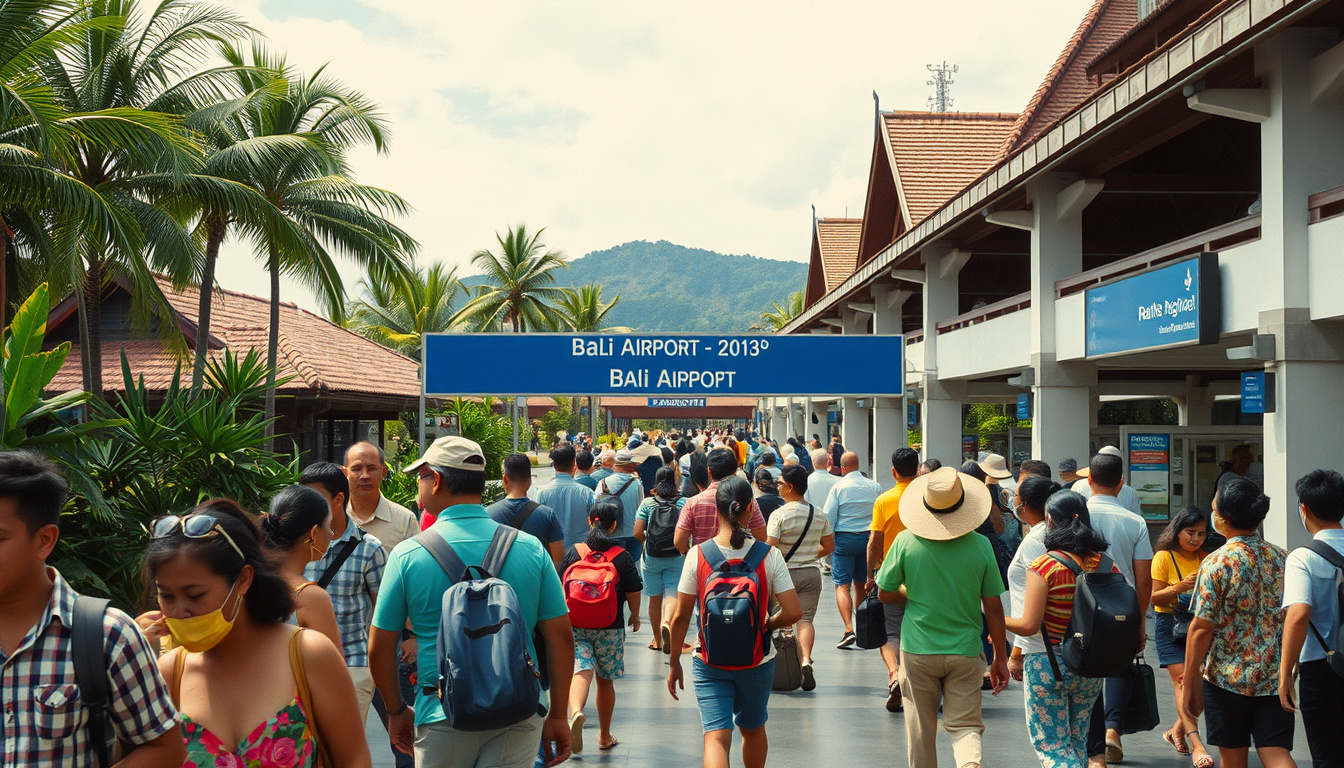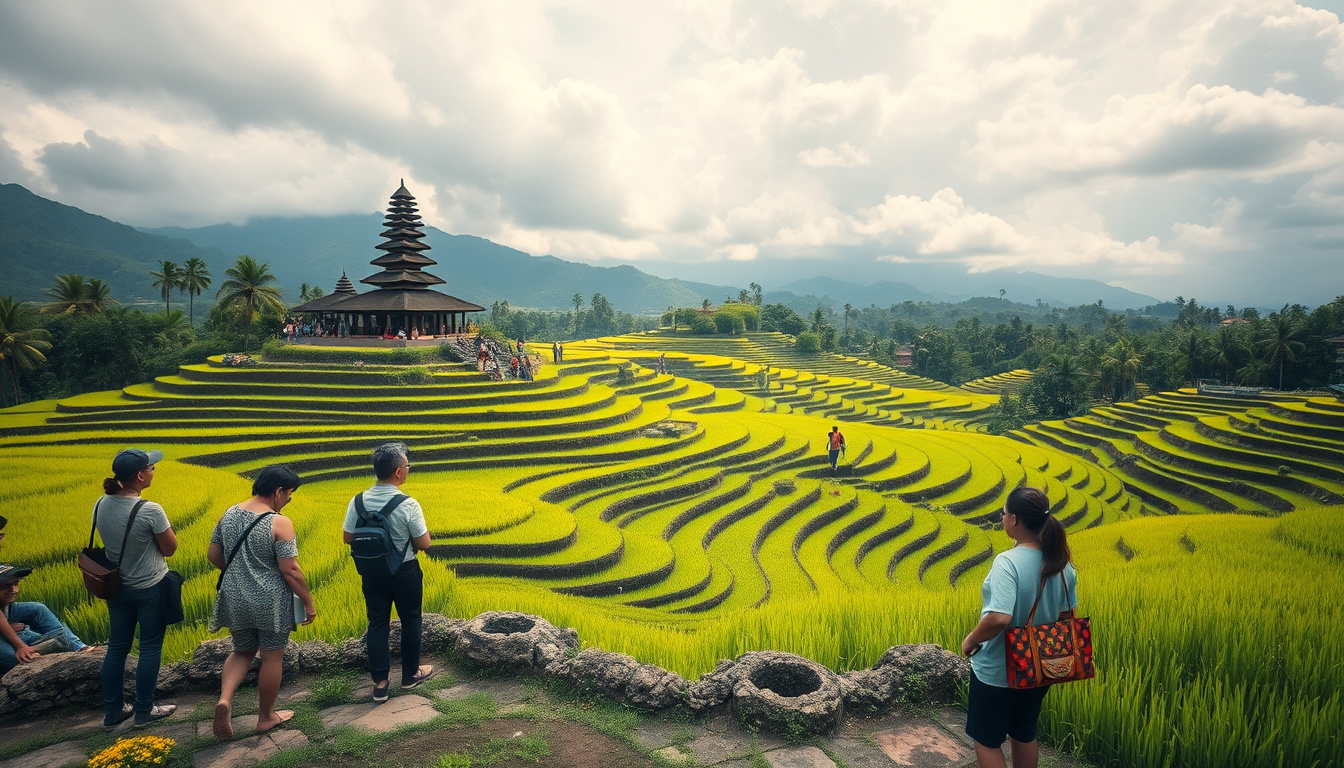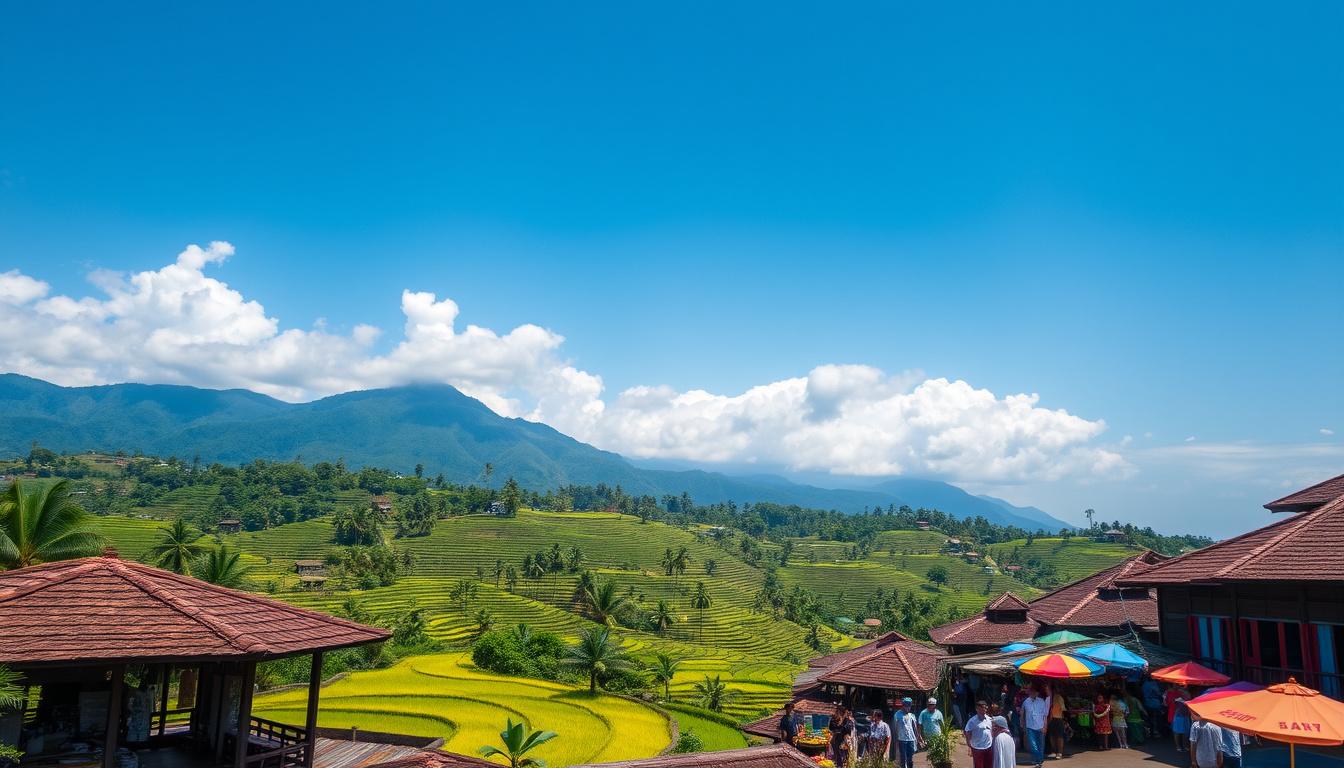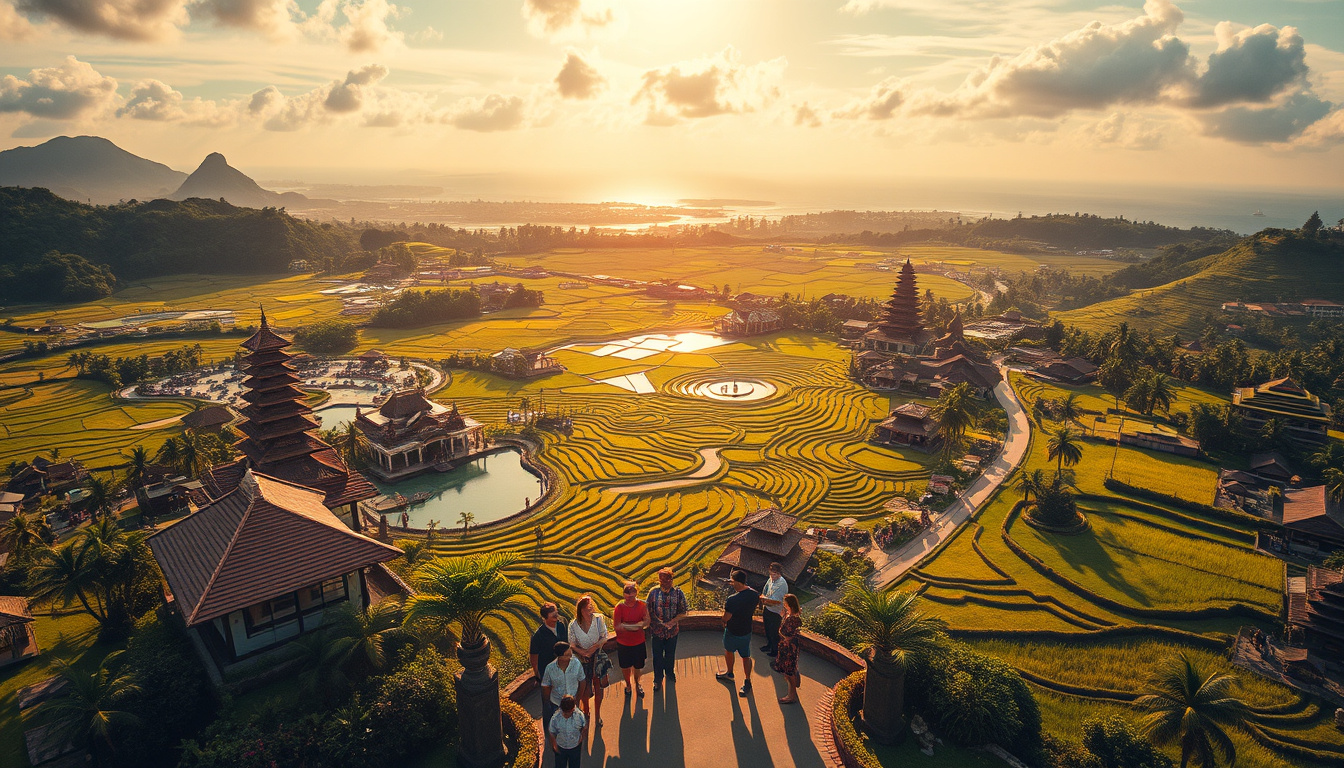Festive and truly entertaining atmosphere imbued Taman Nusa so that visitors got a unique presentation in the Anjangsana area on Sunday (Dec. 2). The regular activities held every weekend started at 17:00 through 19:00 featured 10 bands of ethnic and Indie music by singing their best works. While enjoying Indonesian unique regional songs, visitors can also see the beauty of nature, the terrace above the Melangit River.
Admission for visitors is free of charge to enter the Anjangsana area. This is a means to raise and increase the potential of the art from the community and schools in Bali. Apart from ethnic music and Indie Bands, the Anjangsana also displays the Papua Body Dance with a message ‘Nature is my body and the soul is my nature. Rivers, canoes and sago are single entity that cannot be separated from my life.’
Every region in Indonesia has its own uniqueness, such as regional languages, traditional clothing, special foods, and traditions and can now be found in Tama Nusa. “At the moment it remains about Papua. Probably, only few people know that Papua has a unique cooking tradition known as Bakar Batu (burning stone),” said General Manager of Taman Nusa, I Nyoman Murjana.
Bakar Batu is a traditional cooking method in the daily life of the Papuans. Aside from serving as gratefulness, this method also welcomes the happiness of birth, death, and as an expression of togetherness. “Anjangsana visitors can discuss directly with our friends from Papua. A very interesting and impressive experience is to witness the process of Bakar Batu directly at Anjangsana of Taman Nusa,” said Murjana.
While watching the art of music and performances as well as the tradition of burning stone, visitors can try traditional culinary delights served at the culinary booth. The price is very affordable. There are snacks, market snacks, a variety of fritter, meatballs, chicken satay, various crackers, chips, salad, jingo rice, and traditional fresh drinks and drinks. “In the future, we will collaborate with the archipelagic culinary activists and traditional crafts in Bali,” added Murjana.
Source&image: BaliTravelNews











Add a comment